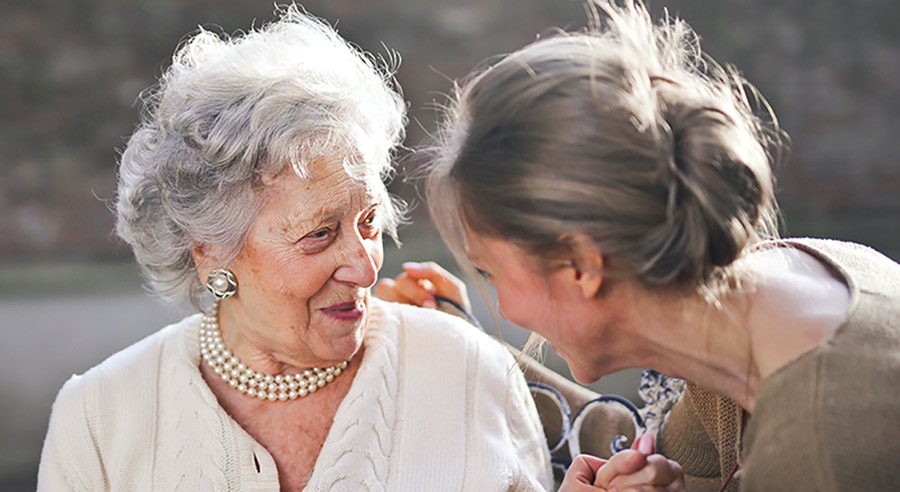Expert NDIS Support Coordinator Services: A Guide to Home Care Providers in Australia
Wiki Article
Exactly How In Home Treatment Givers Address the Unique Challenges and Psychological Demands of Family Members Looking For Support for Their Loved Ones
In-home caretakers play an essential role in browsing the complexities faced by family members seeking assistance for their enjoyed ones. By comprehending special family members dynamics and giving tailored psychological support, these professionals not just address instant treatment demands yet additionally foster a setting of trust fund and open interaction (ndis support coordinator).Comprehending Family Characteristics
Recognizing family characteristics is vital for providing reliable at home treatment, as each family members runs within a special set of communications and partnerships. These characteristics include different components, including communication styles, duties, and class structure that affect exactly how treatment is delivered and received. The caregiver should recognize these elements to make sure that care plans line up with the family's values and expectations.Various families may exhibit distinct patterns of communication, such as collaborative approaches or hierarchical structures. For example, in some family members, a key decision-maker might hold substantial impact, while in others, choices might be a lot more autonomous. Comprehending these patterns helps caretakers customize their strategies to fit the family members's details demands.
Additionally, social backgrounds play an essential duty in forming family members dynamics. Caretakers must be culturally experienced, acknowledging and appreciating diverse techniques and ideas that may affect care preferences.
Eventually, a thorough understanding of household dynamics facilitates enhanced communication, fosters depend on, and enhances the caretaker's capacity to sustain the family efficiently. By recognizing the detailed web of responsibilities and connections, caretakers can create an encouraging atmosphere that promotes wellness for both the private obtaining treatment and the household all at once.
Providing Emotional Assistance
Offering psychological support is a crucial element of at home care that significantly boosts the well-being of both the specific receiving care and their relative. In the context of caregiving, emotional support entails active listening, empathy, and validation of sensations. Caregivers are trained to identify the emotional struggles that family members deal with, such as guilt, seclusion, and anxiety, and to give a compassionate existence that eases these worries.By cultivating open communication, caretakers develop a secure room for household participants to share their fears and concerns. This dialogue not just motivates psychological launch yet additionally reinforces depend on in between the family members and the caretaker. In addition, caregivers can use useful methods to assist households take care of stress and anxiety and promote durability.

Ultimately, the emotional support offered by at home caregivers enhances the lifestyle for both customers and their households, advertising a much more thoughtful and understanding caregiving environment. This alternative technique guarantees that emotional needs are resolved alongside physical health considerations.
Handling Daily Care Tasks
Managing daily care tasks is a vital element of at home treatment that makes certain people obtain the support they need to maintain their health and independence. Caregivers play an important function in aiding with tasks of day-to-day living (ADLs), that include showering, clothing, brushing, and dish prep work. By handling these obligations, caregivers assist minimize the emotional and physical worries that family members may deal with while looking after their enjoyed ones.
In addition to personal care, caretakers are likewise charged with drug administration, making certain that customers adhere to recommended does and timetables. This oversight is essential for maintaining health and avoiding adverse impacts from missed or inaccurate medications. Moreover, caregivers commonly assist with flexibility, offering assistance for customers moving around their homes, thereby decreasing the danger of drops and boosting overall safety and security.

Promoting Open Interaction
Effective monitoring of daily treatment tasks frequently pivots on the quality of interaction between caretakers, clients, and their family members. Open up interaction promotes an atmosphere where concerns, choices, and feedback can be easily traded, ensuring that care is tailored to satisfy private demands. Caretakers ought to prioritize normal check-ins with both customers and their families, facilitating conversations that deal with any concerns or adjustments in care demands.Making use of various interaction methods-- you could try here such as in person meetings, telephone call, and created updates-- can improve understanding and offer family members with assurance. It's crucial for caregivers to proactively listen, demonstrating empathy and respect for the emotional landscape of the household. Urging inquiries from family participants can also help clarify care strategies and enhance the caregiver's dedication to transparency.
In addition, preserving open lines of interaction allows caretakers to recognize and react without delay to any shifts in a client's health condition or emotional wellness. This aggressive method not only enhances the caregiver-client vibrant however additionally encourages family members to take part actively in the treatment process. Inevitably, cultivating open communication is essential for boosting the top quality of in-home treatment and promoting a supportive environment for all entailed.
Structure Depend On and Relationships
Count on is the cornerstone of effective at home care, as it develops a structure for purposeful partnerships in between caregivers, clients, and their families. Building this trust calls for consistent, transparent interaction and a real dedication to the well-being of those included. Caregivers must show reliability through punctuality, adherence to care strategies, and responsiveness to the demands and More Bonuses preferences of customers.To foster count on, caregivers should involve in energetic listening, making certain that families feel heard and comprehended. This entails not only dealing with instant issues but likewise preparing for future demands, thereby empowering families and boosting their sense of control. Establishing relationship through shared experiences and considerate interactions can even more solidify these relationships.
Moreover, caretakers should be trained to identify and resolve the psychological complexities faced by families. By revealing compassion and empathy, they can minimize concerns and uncertainties, enhancing depend on. Normal updates and check-ins with member of the family can also improve transparency, allowing them to really feel engaged and notified regarding their liked one's care.
Ultimately, constructing count on and nurturing partnerships in in-home treatment is a joint process that dramatically affects the high quality of treatment supplied, cultivating a helpful setting that benefits everybody entailed.
Conclusion
By understanding household characteristics, providing psychological assistance, and promoting open interaction, caregivers improve the general caregiving experience - ndis plan manager. Their ability to handle day-to-day treatment jobs while developing depend on and solid partnerships cultivates a helpful atmosphere for customers and their families.Understanding family characteristics is crucial for giving efficient at home treatment, as each family members runs within a special collection of communications and relationships.Giving psychological assistance is an important component of in-home care that substantially improves the well-being try this of both the private getting treatment and their family members. By taking on these obligations, caretakers aid ease the physical and psychological problems that families might encounter while caring for their liked ones.
Effective monitoring of day-to-day care tasks frequently hinges on the top quality of communication between caregivers, clients, and their family members - home care providers.Trust is the cornerstone of successful in-home treatment, as it develops a structure for significant relationships in between caretakers, clients, and their households
Report this wiki page